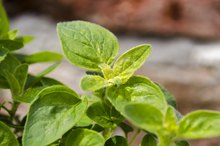When Is the Best Time of Day to Take Siberian Ginseng?
Siberian ginseng has been used for centuries in traditional healing systems, particularly in Chinese medicine. The herb is considered adaptogenic, meaning that it restores balance between the different systems in the body to enhance the ability to cope with stress. However, since Siberian ginseng promotes certain pharmacological effects, how you time its administration can enhance or hinder its effectiveness. This herb is associated with certain side effects, too, so ask your doctor if Siberian ginseng is right for you.
If you are experiencing serious medical symptoms, seek emergency treatment immediately.
Timing
According to Subhuti Dharmananda, Ph.D., Director of the Institute for Traditional Medicine in Portland, Ore., herbs are typically classified in traditional Chinese medical texts as light or heavy, resolving, quick-acting or by other attributes, which must be considered when determining the best time of day to take them 3. Modern interpretations take meals and other factors into consideration, with the general consensus being that the best dosing time for most herbs is usually between meals. However, Dharmananda specifically cautions that stimulating herbs can cause insomnia if taken at night. Therefore, he says, the best time of day to take Siberian ginseng is early in the morning, just as you would enjoy a cup of coffee to "rev up" your system and start your day 3.
Description
The Best Dosage of Passionflower for Treating Anxiety
Learn More
Siberian ginseng is botanically identified as Eleutherococcus senticosus. It is a thorn-bearing, shrub-like, flowering plant indiginous to Russia, Japan, China and East Asia. It can even be found thriving in heavy clay or sandy environments. Although the use of the herb in Chinese medicine is well established, it is somewhat of a newcomer to Western herbal medicine. In addition, it is sometimes confused with Chinese or Panax ginseng because the two plants share some characteristics. However, Siberian ginseng is a completely different species.
- Siberian ginseng is botanically identified as Eleutherococcus senticosus.
- In addition, it is sometimes confused with Chinese or Panax ginseng because the two plants share some characteristics.
Traditional Use
Historically, Siberian ginseng has been used to enhance immune function, increase energy and stamina, improve resistance to colds and flu and to increase vitality in the aged. According to the University of Maryland Medical Center, a single study focused on this use of Siberian showed that four weeks of supplementation improved social and cognitive function in elderly people 1. However, this effect appeared to wear off after eight weeks of taking the herb.
Medicinal Effects
What Are the Benefits of Passion Flower for Menopausal Women?
Learn More
The UMMC also says that multiple studies have shown that an herbal supplement composed of Siberian ginseng and andrographis decreased the severity and duration of colds and flu, provided it was taken within 72 hours of the onset of symptoms. Other popular but unsubstantiated applications of this herb are the stimulation of mental alertness and clarity and relief of physical stress and fatigue. These effects are attributed to the presence of eleutherosides, which allegedly stimulate the immune system and provide energy. In fact, Robert Arthur Anderson, author of “Patient Information on Conditions, Herbs & Supplements” describes Siberian ginseng as have stimulatory effects similar to caffeine 2.
- The UMMC also says that multiple studies have shown that an herbal supplement composed of Siberian ginseng and andrographis decreased the severity and duration of colds and flu, provided it was taken within 72 hours of the onset of symptoms.
- In fact, Robert Arthur Anderson, author of “Patient Information on Conditions, Herbs & Supplements” describes Siberian ginseng as have stimulatory effects similar to caffeine 2.
Safety Considerations
Siberian ginseng is generally safe and well-tolerated, but the UMMC warns that this herb may increase blood pressure and produce headache, confusion, heart palpitations, insomnia and nosebleeds in some people. This herb may also interfere with heart medications, blood-thinning drugs, sedatives and anti-seizure medications. Do not use this herb if you have a chronic condition or are taking medications unless you are under the supervision of a qualified health care practitioner.
- Siberian ginseng is generally safe and well-tolerated, but the UMMC warns that this herb may increase blood pressure and produce headache, confusion, heart palpitations, insomnia and nosebleeds in some people.
Related Articles
References
- University of Maryland Medical Center: Siberian Ginseng
- Patient Information on Conditions, Herbs & Supplements; Robert Arthur Anderson
- ITMonline.org: On the Best Time of Day to Take Herbal Remedies
Writer Bio
Karyn Maier is a seasoned columnist and feature writer. Since 1992, her work has appeared in Mother Earth News, The Herb Quarterly, Better Nutrition and in many other print and digital publications. She is also the author of five books, and is published in six languages.








